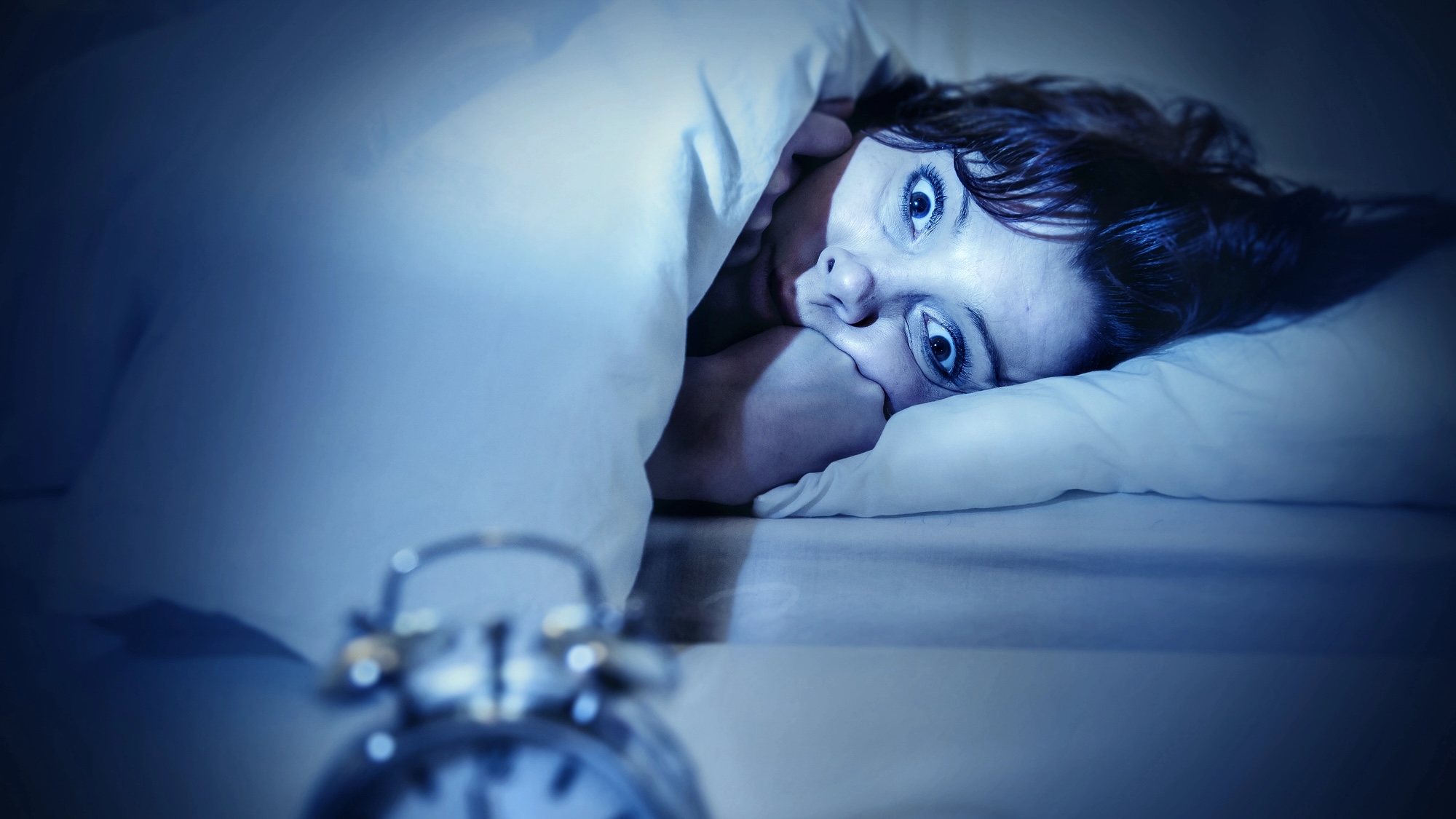It’s one of the oddest sensations you can experience as you’re trying to turn in for the night. Just as you think you’re falling asleep, you suddenly feel as though you’re in a freefall. Your stomach somersaults and your body involuntarily spasms as you lay in bed. Your limbs, or even your entire upper body, may jerk or thrash in the process. There’s no logical reason why you felt as if you briefly entered a fight-or-flight mode and whatever calmness you recently attained is erased in an instant. The experience may leave you confused, annoyed, or simply weirded out—and to make matters worse, it likely isn’t the first time this has happened. But if it’s any consolation, you aren’t alone.
An estimated 70 percent of people will experience hypnic jerking at least once in their lives. Around 10 percent of the population may even regularly succumb to the sensation, also called hypnagogic jerks in reference to the hypnagogic transitional stage of falling asleep. And yet, despite its regularity and decades of documentation, researchers haven’t come to an agreement on what causes the oddity often called a “sleep start,” or why it happens.
“Hypnic jerks represent a fascinating phenomenon of sleep; however, additional studies are needed to clarify their physiology and origin,” summarizes the authors of a 2018 study in the journal, Current Sleep Medicine Reports. Over six years later, that opinion still stands among experts in the field.
“I’m not aware of any good explanation for why it happens,” says Allen Richert, associate professor of psychiatry and division director of sleep medicine in the University of Mississippi Medical Center’s Department of Psychiatry and Human Behavior. “It’s an organized muscle movement, so it’s going to require central nervous system communications. Although where and what stimulates that movement, and why, is, to my knowledge, unknown.”
There are a few knowables about hypnic jerks, however. According to experts, the movements are prime examples of myoclonus or myoclonic jerks—involuntary muscle spasms similar to hiccups and epileptic seizures. But that isn’t to say jolting awake shortly after turning out the lights is cause to schedule an MRI scan.
“We don’t think of it as a pathological problem. It’s a normal phenomena,” explains Richert. “It’s definitely not the sign of a sleep disorder that we would treat, and not a sign of any underlying problems such as seizures or movement disorders.”
The American Academy of Sleep Medicine offers a number of reasons that may be causing your particular variant of hypnagogic jerks. Unfortunately, the spectrum of explanations is so broad that it really doesn’t help narrow down much at all. While a “high intake of caffeine or other stimulants” and “excessive stress” could generate sleep starts, so could “prior intense physical work or exercise” and sleep deprivation. Hypnagogic jerks could come from being too amped up—but also they may happen when you are exhausted.
“That’s the interesting thing,” Richert says. “A lot of times, you can say, ‘Well, if you deprive yourself of sleep for a while, you’re more likely to have some [physical consequences].’ But… as far as I’m aware, there’s no evidence to suggest that sleeping more would make it better, or that if you don’t get enough sleep, it gets worse.”
Still, many sleep researchers have offered their own plausible theories to explain hypnic jerks. One group hypothesizes that the sensation happens after decreasing blood pressure and muscle tissue relaxation causes your brain to misfire and briefly enter a panic mode. While there isn’t concrete evidence to back it up yet, other experts contend the feeling arises when your brain instinctually thinks you are liable to fall out of a tree—as may have been the case for some of our primate ancestors.
[Related: Why do jump scares terrify us so much? Blame evolution.]
Richert adds that he’s also not aware of specific medications or behavioral modifications that are proven to increase or decrease sleep starts. For its part, the AASM recommends some of the classic pre-slumber tips: avoid caffeine and other stimulants in the hours before going to bed, work to reduce stress, and ensure you are getting enough sleep overall.
But as long as hypnic jerks—or fears of them—aren’t negatively impacting your life, then Richert and other experts say there is no need to seek medical consultation. For the time being, hypnagogic jerks remain yet another mysterious evolutionary quirk of being human—but they certainly aren’t an issue worth losing sleep over.
This story is part of Popular Science’s Ask Us Anything series, where we answer your most outlandish, mind-burning questions, from the ordinary to the off-the-wall. Have something you’ve always wanted to know? Ask us.

